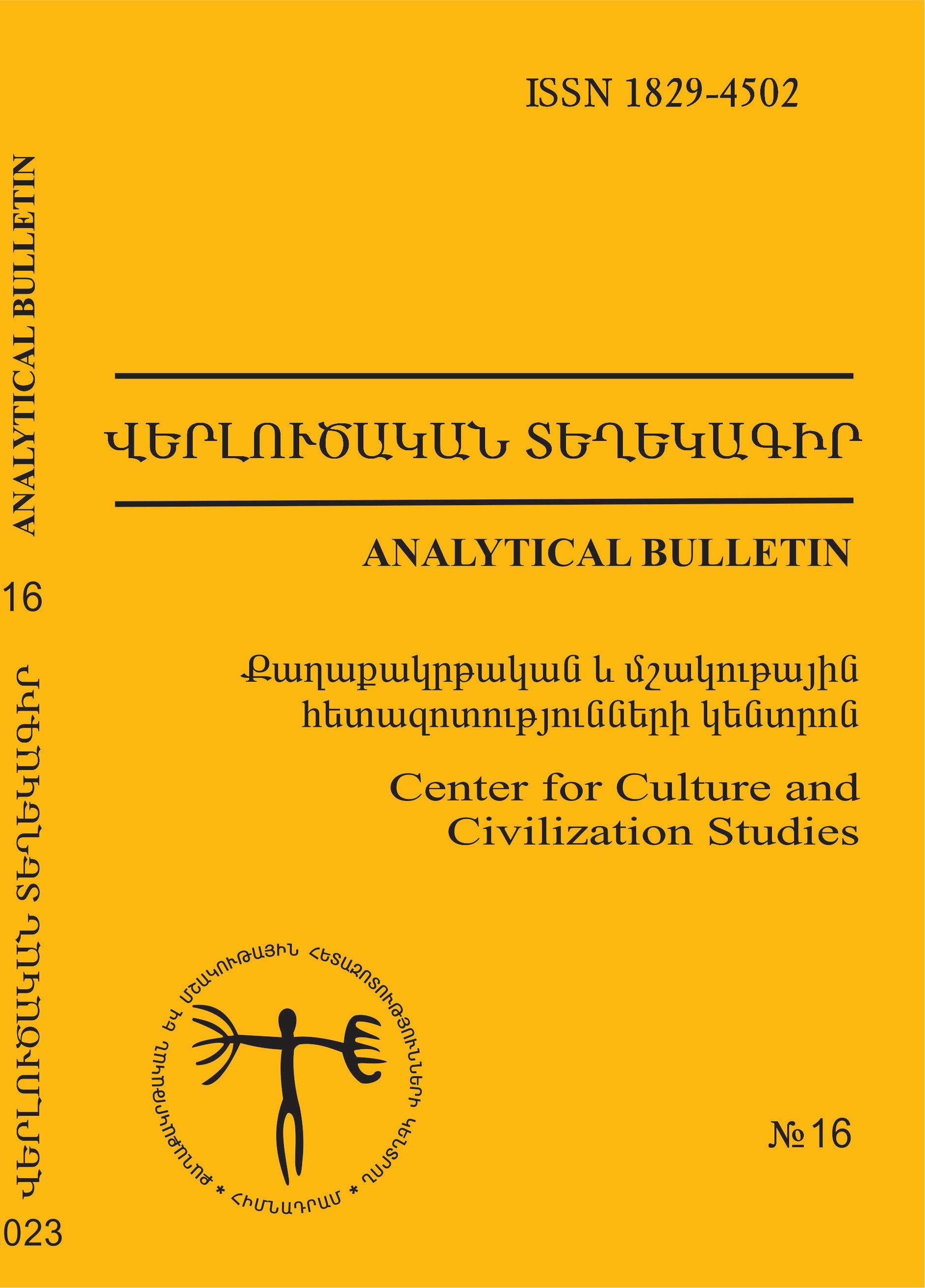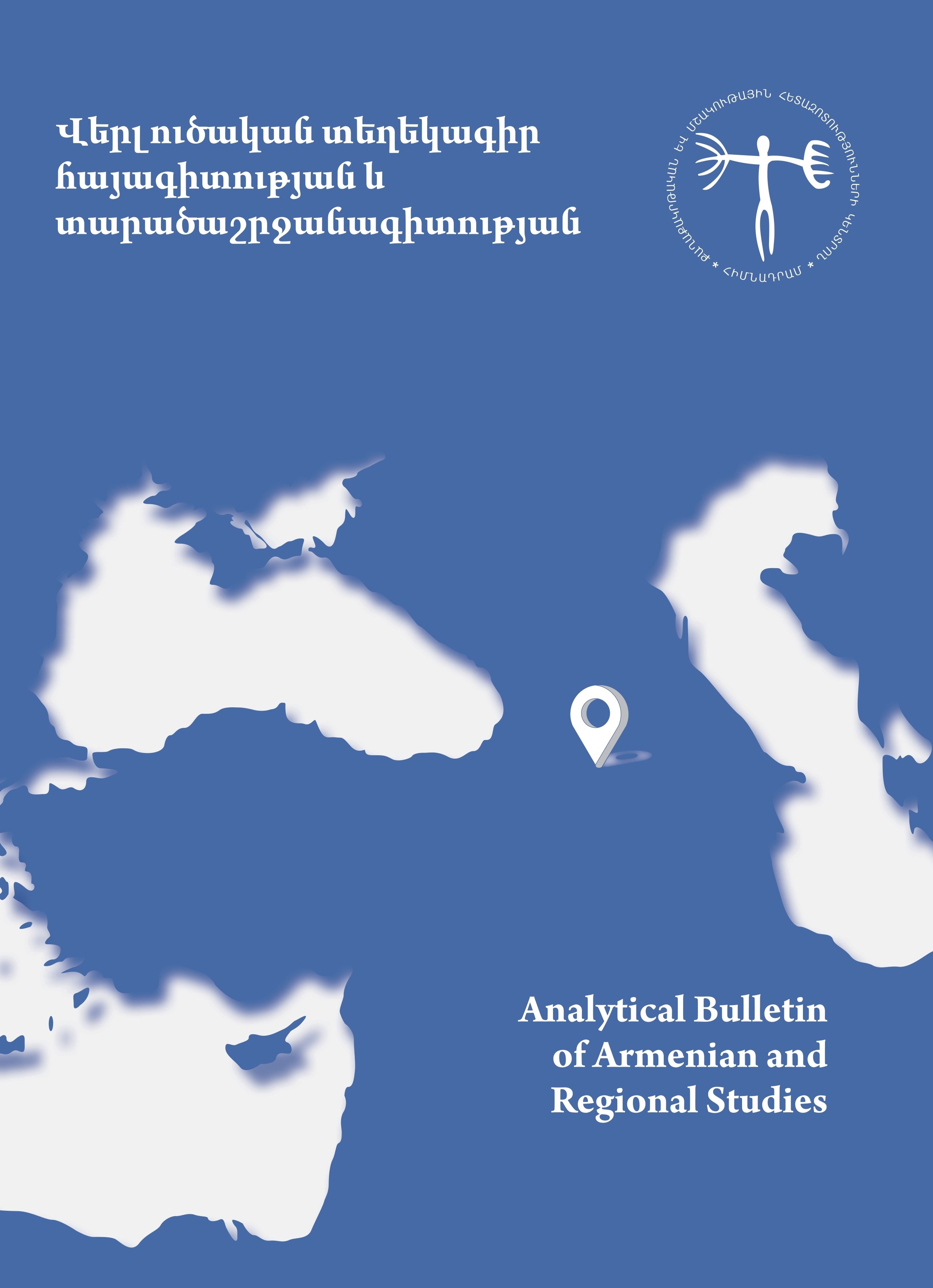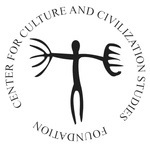The Effects of conspiracy theory spread by leaders during times of war: The role of gender on follower perceptions of leader effectiveness and warmth
DOI:
https://doi.org/10.56673/18294502-23.16-55Keywords:
Leader effectiveness;, Armenia; , Conspiracy theory; , Gender; , WarAbstract
This paper investigates whether the spread of conspiracy theories by leaders during times of war has an effect on perceived leader effectiveness and warmth by followers additionally takes into account the role of gender in this exchange. Analysis demonstrates that the gender of the leader had no significant effect on followers’ perceived effectiveness or warmth in all the conditions. Furthermore, conspiracy spread did not have a significant interaction with perceived effectiveness, however, conspiracy-spreading leaders were perceived as less warm compared to neutral leaders. The results led to the conclusion that based on our sample taken from the Armenian population, the leader’s gender does not play a role in perceived effectiveness when delivering bad news during times of crisis.
References
Asatryan, Georgi. “Azerbaijan’s Foray into Digital Authoritarianism: The Virtual World of Disinformation and Repression.” EVN Report, October 31, 2022. https://evnreport.com/magazine-issues/azerbaijans-foray-into-digital-authoritarianism-the-virtual-world-of-disinformation-and-repression/.
Avramov, Kiril. “By Another Way of Deception: The Use of Conspiracy Theories as a Foreign Policy Tool in the Arsenal of the Hybrid Warfare.” Information & Security 39, no. 2 (January 1, 2018): 151–61. https://doi.org/10.11610/isij.3913.
Capozza, Dora, Andrea Bobbio, Gian Antonio Di Bernardo, Rossella Falvo, and Ariela Francesca Pagani. “Leaders’ Competence and Warmth: Their Relationships with Employees’ Well-Being and Organizational Effectiveness.” TPM 24, no. 2 (January 1, 2017): 185–214. https://doi.org/10.4473/tpm24.2.3.
De Coninck, David, Thomas Frissen, Koenraad Matthijs, Leen D’Haenens, Grégoire Lits, Olivier Champagne-Poirier, Marie-Eve Carignan, et al. “Beliefs in Conspiracy Theories and Misinformation about COVID-19: Comparative Perspectives on the Role of Anxiety, Depression and Exposure to and Trust in Information Sources.” Frontiers in Psychology 12 (April 16, 2021). https://doi.org/10.3389/fpsyg.2021.646394.
Douglas, Karen M., Joseph E. Uscinski, Robbie M. Sutton, Aleksandra Cichocka, Turkay Nefes, Chee Siang Ang, and Farzin Deravi. “Understanding Conspiracy Theories.” Political Psychology 40, no. S1 (2019): 3–35. https://doi.org/10.1111/pops.12568.
Fiske, Susan T. “Stereotype Content: Warmth and Competence Endure.” Current Directions in Psychological Science 27, no. 2 (2018): 67–73. https://doi.org/10.1177/0963721417738825.
Jolley, Daniel, Rose Meleady, and Karen M. Douglas. “Exposure to Intergroup Conspiracy Theories Promotes Prejudice Which Spreads across Groups.” British Journal of Psychology 111, no. 1 (2019): 17–35. https://doi.org/10.1111/bjop.12385.
Kutsyuruba, Benjamin, and Keith D. Walker. “The Destructive Effects of Distrust: Leaders as Brokers of Trust in Organizations.” The Dark Side of Leadership: Identifying and Overcoming Unethical Practice in Organizations, 2016, 133–54. https://doi.org/10.1108/s1479-366020160000026008.
Kużelewska, Elżbieta, and Mariusz Tomaszuk. “Rise of Conspiracy Theories in the Pandemic Times.” International Journal for the Semiotics of Law - Revue internationale de Sémiotique juridique 35, no. 6 (2022): 2373–89. https://doi.org/10.1007/s11196-022-09910-9.
Madanchian, Mitra, Norashikin Hussein, Fauziah Noordin, and Hamed Taherdoost. “Leadership Effectiveness Measurement and Its Effect on Organization Outcomes.” Procedia Engineering 181 (2017): 1043–48. https://doi.org/10.1016/j.proeng.2017.02.505.
McDonald, Melissa M., Carlos David Navarrete, and Mark Van Vugt. “Evolution and the Psychology of Intergroup Conflict: The Male Warrior Hypothesis.” Philosophical Transactions of the Royal Society B: Biological Sciences 367, no. 1589 (2012): 670–79. https://doi.org/10.1098/rstb.2011.0301.
Napolitano, M. Giulia, and Kevin Reuter. “What Is a Conspiracy Theory?” Erkenntnis 88, no. 5 (2021): 2035–62. https://doi.org/10.1007/s10670-021-00441-6.
Papakyriakopoulos, Orestis, Juan Carlos Medina Serrano, and Simon Hegelich. “The Spread of Covid-19 Conspiracy Theories on Social Me-DIA and the Effect of Content Moderation.” Harvard Kennedy School Misinformation Review, 2020. https://doi.org/10.37016/mr-2020-034.
Plenta, Peter. “Conspiracy Theories as a Political Instrument: Utilization of Anti-Soros Narratives in Central Europe.” Contemporary Politics 26, no. 5 (June 17, 2020): 512–30. https://doi.org/10.1080/13569775.2020.1781332.
Ren, Zhiying, Andrew M. Carton, Eugen Dimant, and Maurice E. Schweitzer. “Authoritarian Leaders Share Conspiracy Theories to Attack Opponents, Galvanize Followers, Shift Blame, and Undermine Democratic Institutions.” Current Opinion in Psychology 46 (August 1, 2022): 101388. https://doi.org/10.1016/j.copsyc.2022.101388.
Smith, Jennifer E., Claudia Fichtel, Rose K. Holmes, Peter M. Kappeler, Mark Van Vugt, and Adrian V. Jaeggi. “Sex Bias in Intergroup Conflict and Collective Movements among Social Mammals: Male Warriors and Female Guides.” Philosophical Transactions of the Royal Society B 377, no. 1851 (April 4, 2022). https://doi.org/10.1098/rstb.2021.0142.
Uscinski, Joseph E., Adam M. Enders, Casey A. Klofstad, Michelle I. Seelig, Hugo Drochon, Kamal Premaratne, and Manohar N. Murthi. “Have Beliefs in Conspiracy Theories Increased over Time?” PLOS ONE 17, no. 7 (July 20, 2022): e0270429. https://doi.org/10.1371/journal.pone.0270429.
Uscinski, Joseph E., Adam M. Enders, Amanda B. Diekman, John Funchion, Casey A. Klofstad, Sandra Kuebler, Manohar N. Murthi, et al. “The Psychological and Political Correlates of Conspiracy Theory Beliefs.” Scientific Reports 12, no. 1 (December 15, 2022). https://doi.org/10.1038/s41598-022-25617-0.
Van Prooijen, Jan-Willem, and Karen M. Douglas. “Conspiracy Theories as Part of History: The Role of Societal Crisis Situations.” Memory Studies 10, no. 3 (June 29, 2017): 323–33. https://doi.org/10.1177/1750698017701615.
Van Prooijen, Jan-Willem, and Mark Van Vugt. “Conspiracy Theories: Evolved Functions and Psychological Mechanisms.” Perspectives on Psychological Science 13, no. 6 (September 19, 2018): 770–88. https://doi.org/10.1177/1745691618774270.
Van Prooijen, Jan-Willem, and Mengdi Song. “The Cultural Dimension of Intergroup Conspiracy Theories.” British Journal of Psychology 112, no. 2 (August 13, 2020): 455–73. https://doi.org/10.1111/bjop.12471.
Van Prooijen, Jan-Willem. “Psychological Benefits of Believing Conspiracy Theories.” Current Opinion in Psychology 47 (October 1, 2022): 101352. https://doi.org/10.1016/j.copsyc.2022.101352.
Downloads
Published
How to Cite
Issue
Section
License
Copyright (c) 2023 Hovhannes Jijyan

This work is licensed under a Creative Commons Attribution-NonCommercial 4.0 International License.









